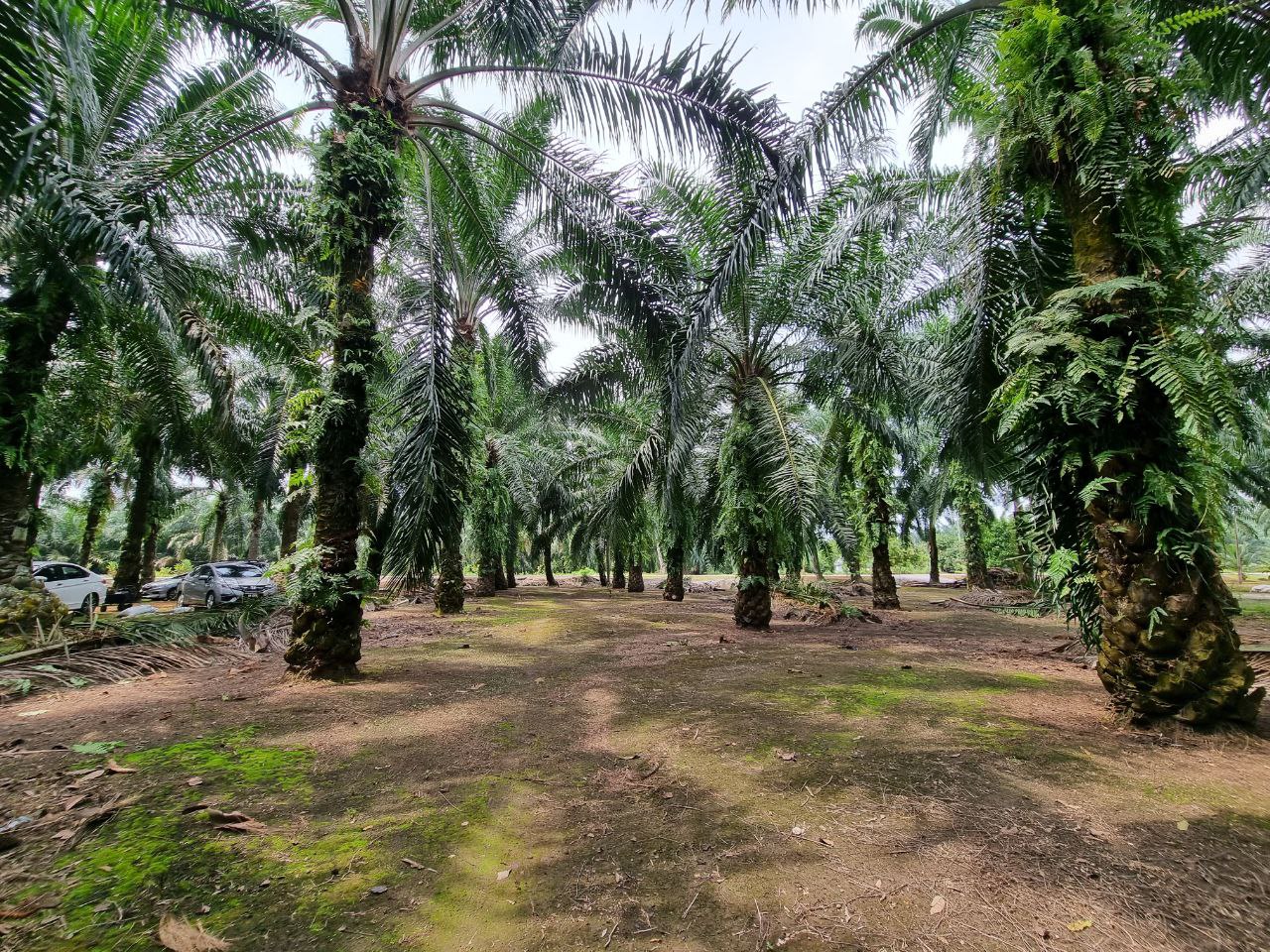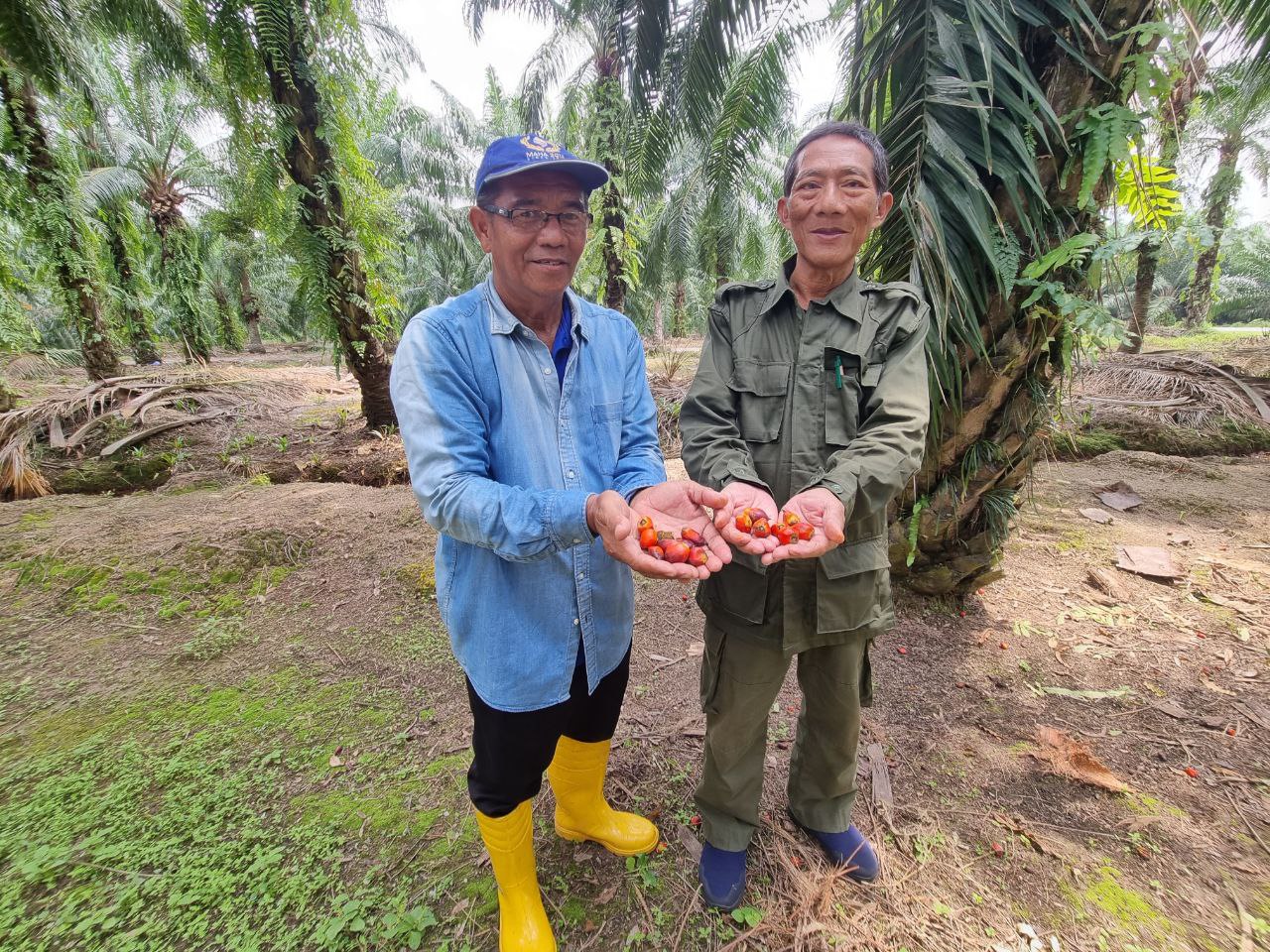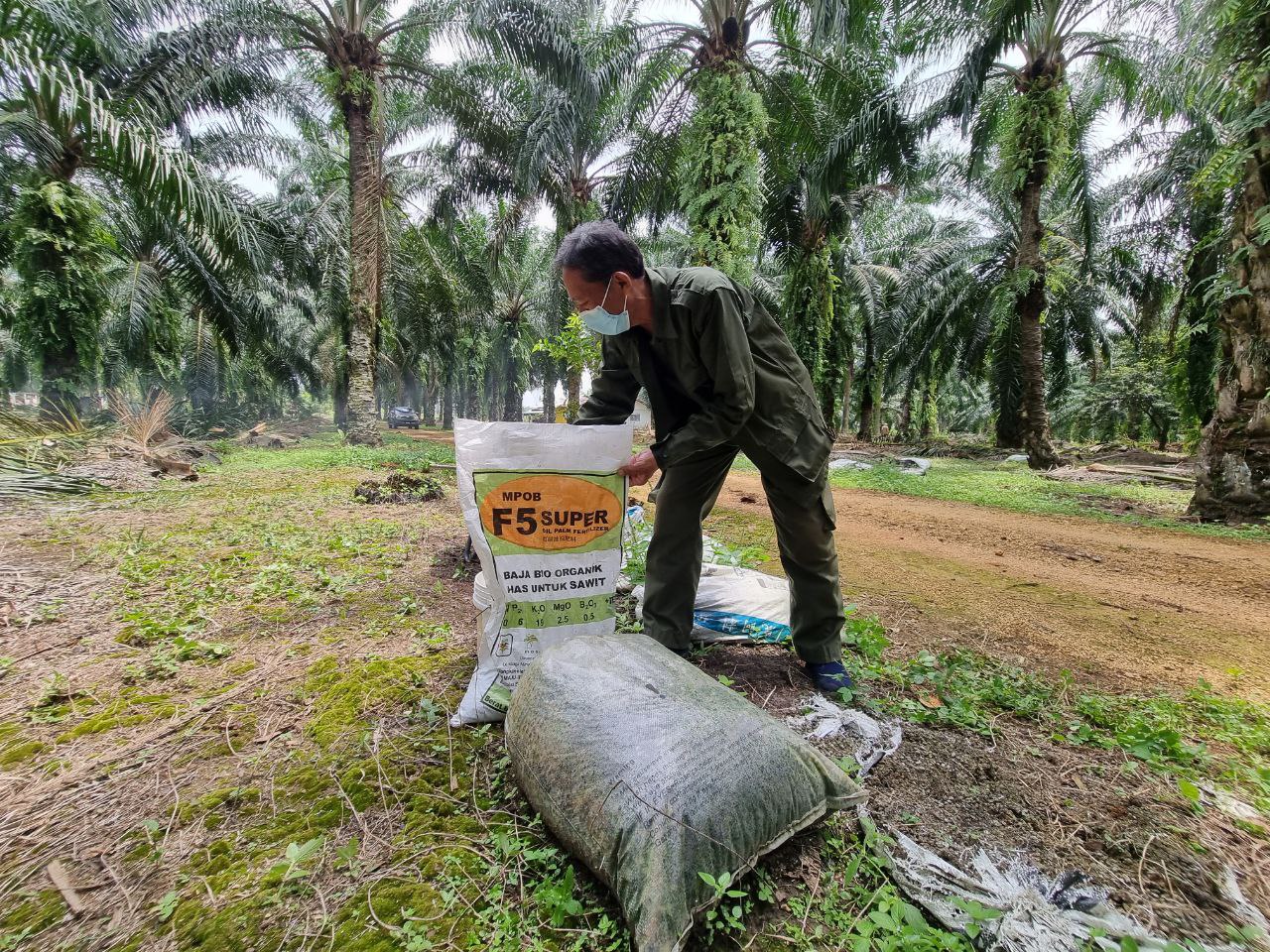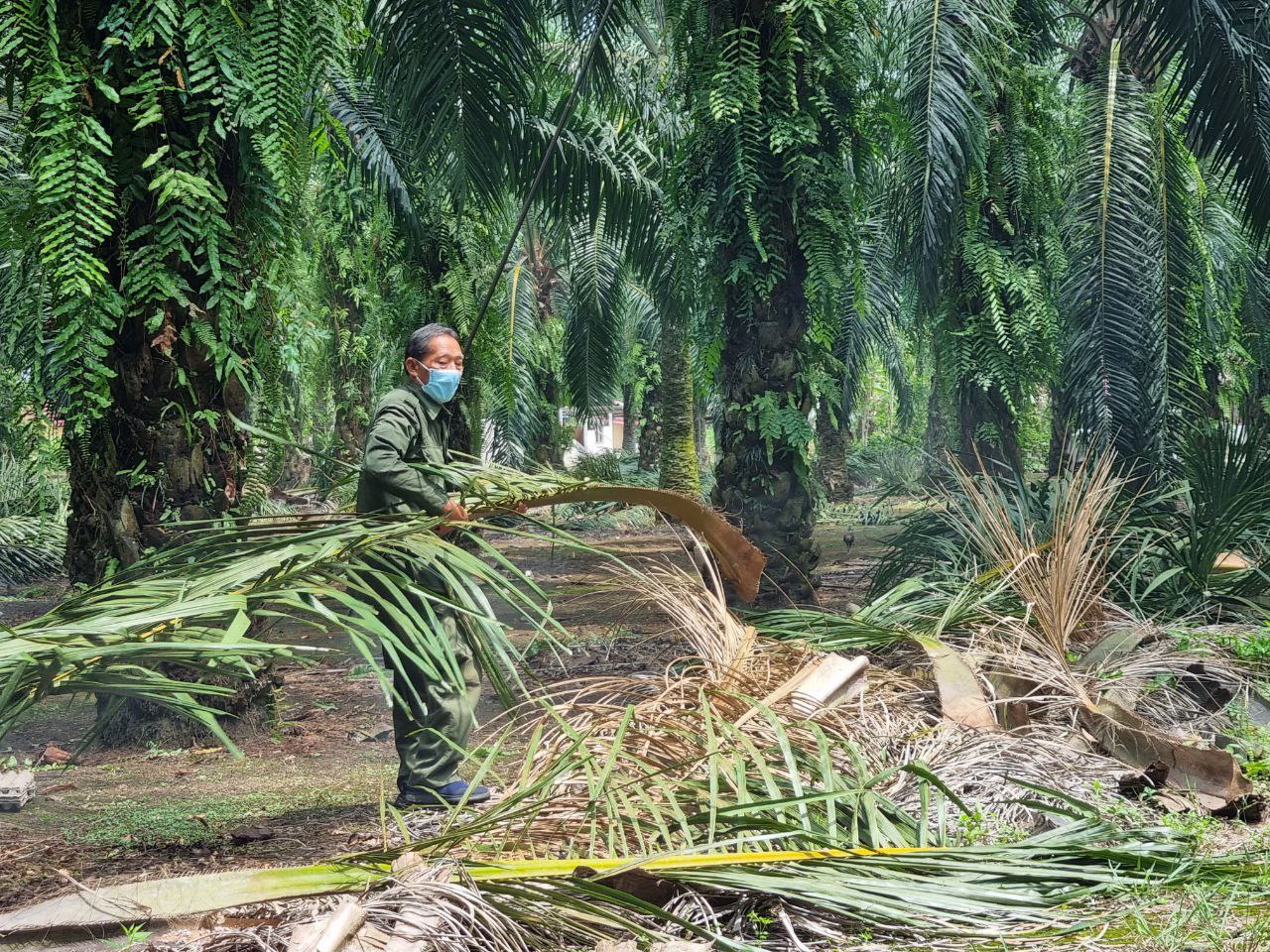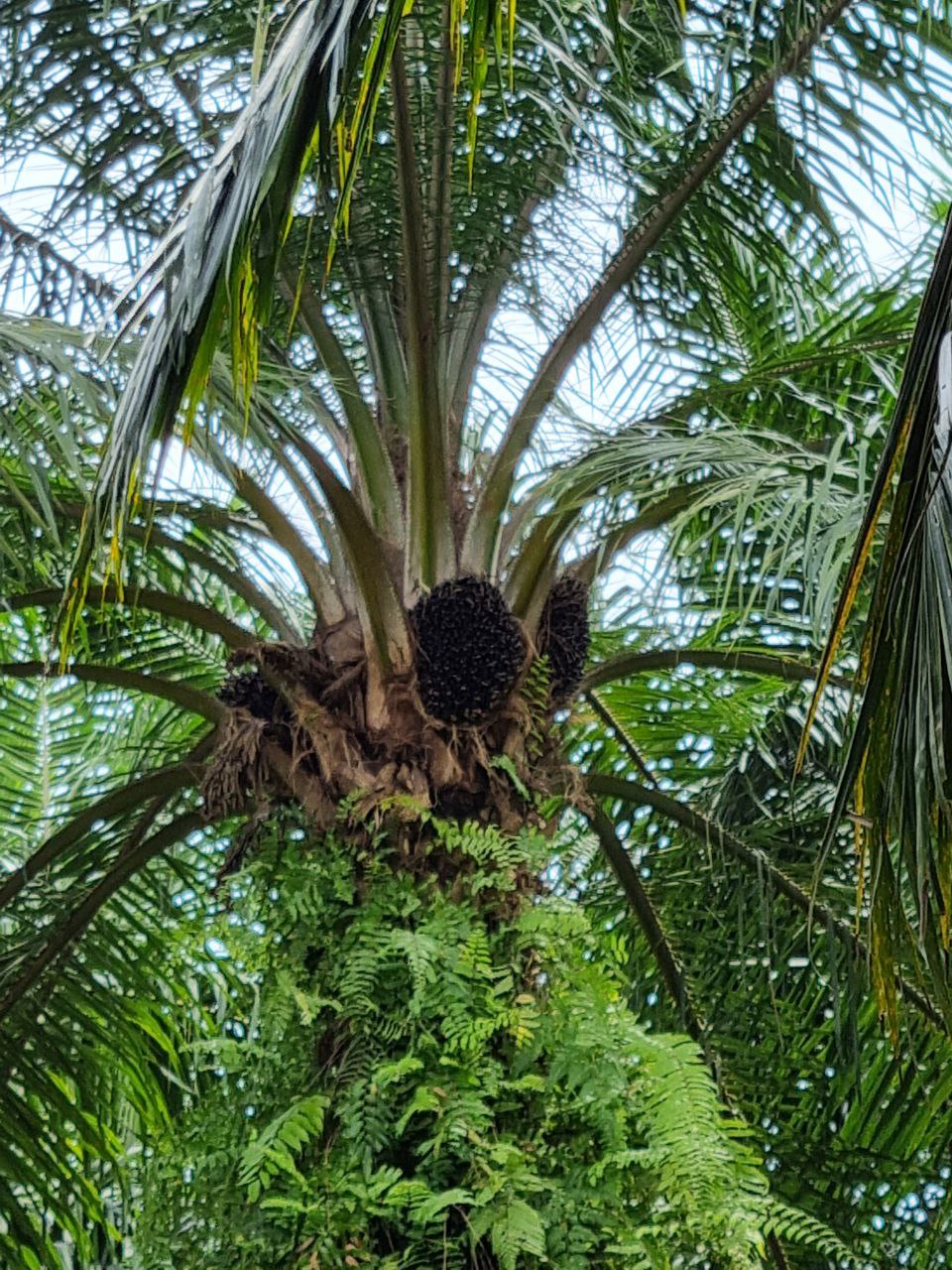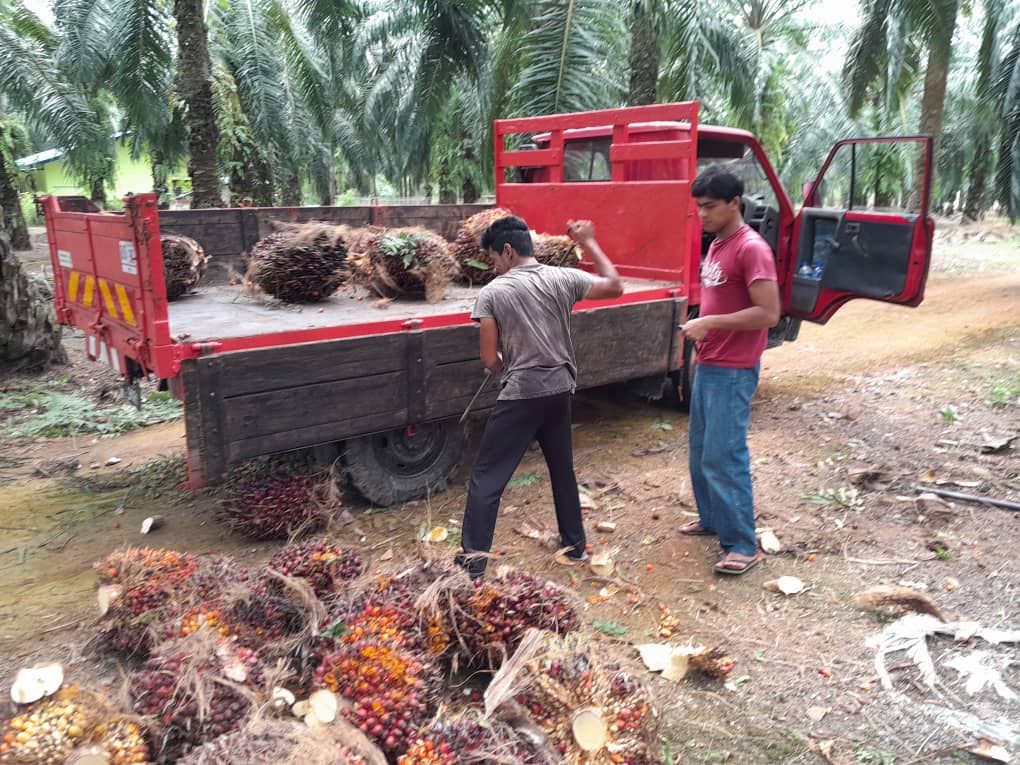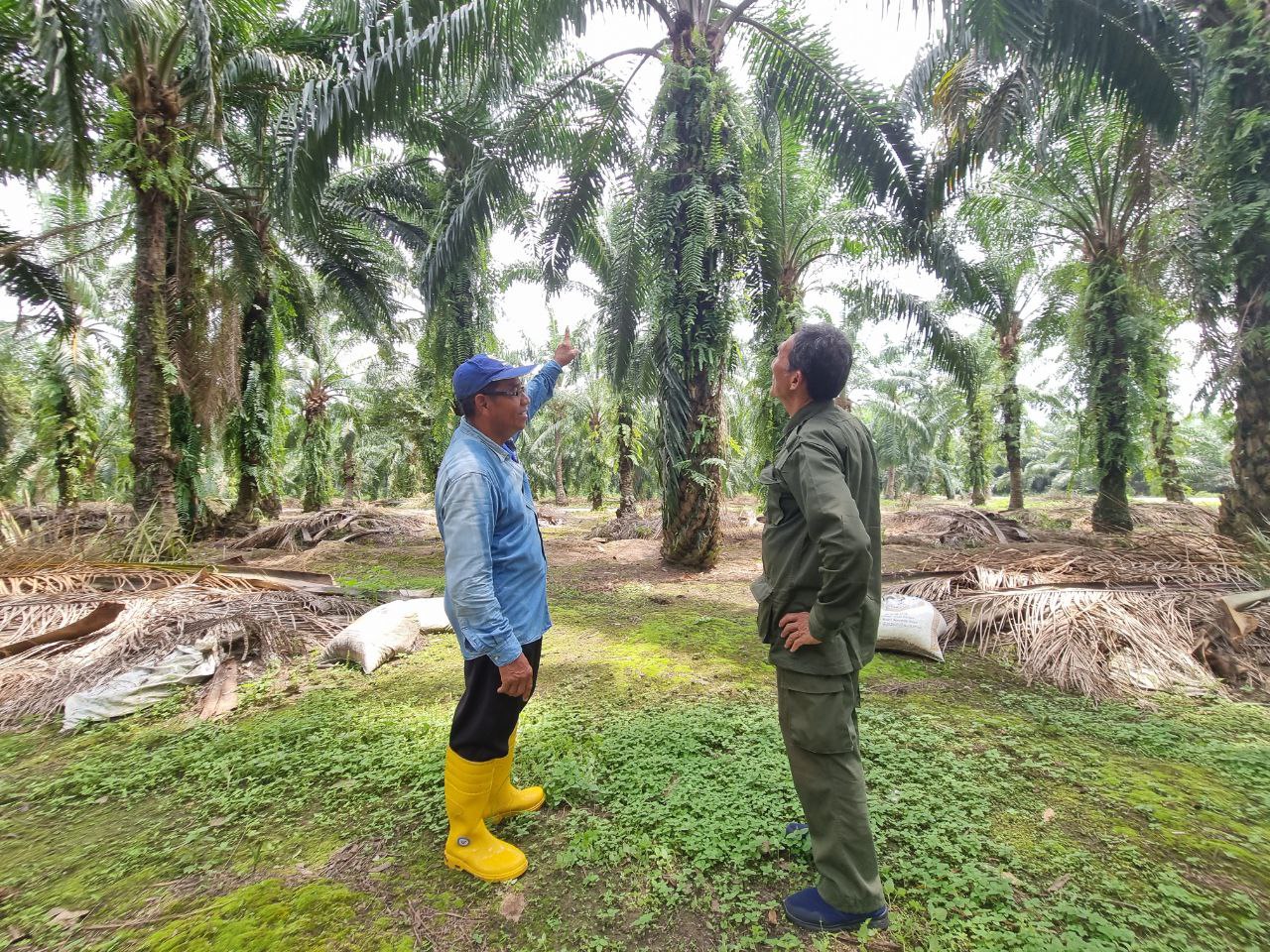"It's Worth The Work" — Local Farmers Shed Light On What Oil Palm Farming Is Like In M'sia
According to the farmers, oil palm farming not only helps them support their families, but also creates job opportunities for many people living in kampungs.
With Malaysia being the world's second-largest producer of palm oil, many are aware how important of a commodity it is for the country
Malaysia's palm oil industry produces about 90 million tonnes of lignocellulosic biomass (plant dry matter), including empty fruit bunches, oil palm trunks, oil palm fronds, and palm oil mill effluent (POME).
Under the Ministry of Plantation Industries and Commodities (MPIC), the Malaysian Palm Oil Board (MPOB) is a government agency responsible for the promotion and development of the palm oil sector in the country.
And in response to concerns about the environmental impacts of oil palm farming, the Malaysian Palm Oil Certification Council (MPOCC) was founded in December 2014 to ensure the practice becomes more sustainable.
However, not many know much about oil palm farming on a deeper level, particularly when it comes to the local farmers who have made it their livelihood.
Speaking to SAYS, two Malaysian farmers shared their experiences with oil palm farming.
Haji Sharif (left) and Wak (right) showing off a handful of oil palm fruits.
Image via Akmal Redzwan / SAYSMeet Abdul Manan Nordin, better known as Wak, who has been doing oil palm farming for 10 years now. Also meet the 60-year-old Sharif Ibrahim, a.k.a. Haji Sharif, who has been in the industry for almost 30 years.
Measuring two and a half acres, the former's oil palm plantation is located in Sabak Bernam, while the latter's three-acre plantation is located in Jeram, Selangor.
Before getting into oil palm farming, both men used to have different kinds of plants on their fields — Wak used to grow coconut trees, while Haji Sharif's field used to be filled with herbs like serai and lengkuas — and each has their own reason for switching
Having worked in rubber tree plantations with his father from a young age, Haji Sharif was drawn to how managing a oil palm plantation was easier, as one does not need to go to the plantation every day to harvest the produce.
As for Wak, his decision was fueled by the fact that the palm oil industry was booming at the time, causing many other farmers like himself to make the switch.
According to them, oil palm farming still takes a lot of work, despite not having to do daily harvests. While harvesting only happens every 10 to 14 days, their other duties include things like pruning, fertilising, doing pest control, and more. They even collect dry fronds and leave them piled up by the trees as another source of fertiliser.
"First thing is to clean, then put fertiliser according to specific measurements. If possible, we should check on the trees every day in case there are insects eating the shoots. If there are, we have to use pesticide.
"During the harvest season, like it is now, we have to do pruning by throwing away the old leaves and fronds. We don't burn them, we pile them up next to the trees as another source of fertiliser.
"Harvesting is usually done every 20 days, when the fruit is ripe and falls. There is yield throughout the year, and we usually harvest three times in two months," shared Wak.
Wak and Haji Sharif say that oil palm farming has helped them better their lives
Both of them talked about how their involvement in the palm oil industry has increased their standard of living and allowed them to support their families, as it is a more stable source of income. Most notably, they were both able to use their earnings to support their children's education, all the way to college and university.
Wak shared how his oil palm plantation is yielding encouraging results, now managing to obtain more than one tonne per harvest. As for Haji Sharif, he has been able to obtain an average production of up to 30 tonnes/ha/year of fresh fruit bunches (FFB).
At the same time, they also supplement their earnings with other sources of income. In the downtime that oil palm farming provides, Wak works as a Jabatan Sukarelawan Malaysia (RELA) member and runs a homestay. Meanwhile, Haji Sharif moonlights as a contractor who works on houses, roads, and drains.
Speaking on the benefits and uses of oil palm trees, Haji Sharif explained how it goes beyond just extracting oil, and how it actually helps to create job opportunities for those living in kampungs
"Oil palm trees are very useful, it's just that a lot of people are not aware of this. Of course, its main use is to make cooking oil. But did you know that after you extract the oil, the kernels can be used as feed for livestock? Some parts of the trees can even be burned to create tanah hitam, which can be used as fertiliser.
"Other parts can actually be cooked as vegetables, this is kampung-style cooking and it's delicious! Some villagers make penyapu lidi, handicrafts, and furniture from the trees too. This creates job opportunities as they're able to make and sell these things," said Haji Sharif, detailing the many uses of oil palm trees.
Wak echoed these sentiments, adding that the handicrafts made from oil palm trees are able to boost our local arts and crafts industry. Plus, he suggested that oil palm plantations can even contribute to tourism and education, by organising homestay tours or lawatan sambil belajar for students.
Helping these farmers throughout their journeys is the Malaysian Palm Oil Board (MPOB), who is doing their best to ease local oil palm farmers' struggles
Wak and Haji Sharif are among those who have benefitted from MPOB's various initiatives, with one of them being the Livestock Integration Scheme. As part of this project, oil palm farmers were offered the chance to also raise cows or goats on their plantations, for extra income. Wak and Haji Sharif both received 22 goats each.
In addition, MPOB also helps to guide farmers via all kinds of courses and training sessions. Topics covered include efficient management of plantations, how to do fertilisation and pest control, harvesting techniques, record keeping, and more.
"There are courses, you can apply for seeds, they sometimes give us fertiliser. For the courses, they teach us how to manage a farm, what to do after a harvest, things like that. That's how MPOB helps and guides us. They teach us whatever we don't know," Wak explained.
"They give us a lot of advice. There are courses on pretty much everything, from fertilisation to how to efficiently manage the plantation," added Haji Sharif.
The government agency even does research on how to mitigate or avoid the damage done by pests that destroy oil palm trees, which is one of the biggest challenges faced by farmers as it affects output, and shares that information with the farmers.
One of the most important things MPOB does for independent oil palm smallholders is assisting them in getting the required Malaysian Sustainable Palm Oil (MSPO) certification from MPOB, without which they are not allowed to operate their plantations or sell their harvests.
With the support from MPOB, Wak and Haji Sharif will strive to continue doing their best, and hope that Malaysians will also support the work of local oil palm farmers like them
Check out MPOB's website to find out more about their efforts to help local oil palm farmers and further develop Malaysia's palm oil industry, all while keeping sustainability in mind.
